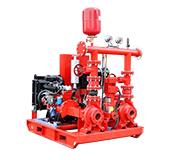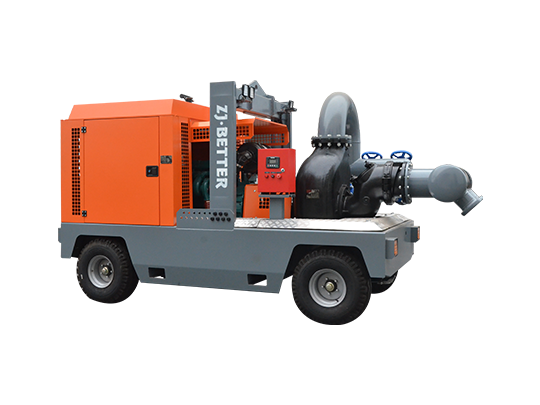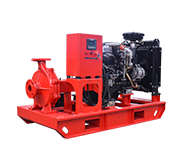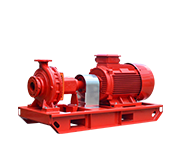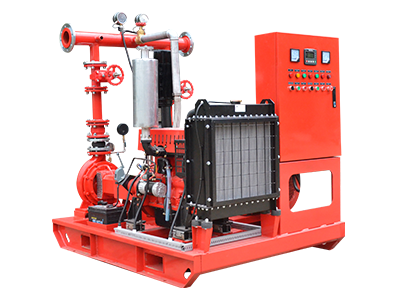- Fire Pump System
-
- UL-Listed Fire Pump SetEDJ End Suction Fire Pump SetEDJ Fire Pump SetEJ Small Flow Fire Pump SetFire Pump PackagesContainerized fire pump setDiesel Fire Pump SetED Small fire pump setElectric Jockey Fire Pump SetFire Pump Set with Jockey PumpFire Pump SystemSplit Case Fire Pump SetMutistage EDJ Fire Pump SetDiesel Fire Pump Set with Jockey PumpFire Fighting Pump SystemElectric Diesel Jockey Fire Pump SetFire Fighting Pump Set with Jockey PumpSmall Capacity Electric Fire Pump SetDJ Fire Pump Set with Jockey PumpEJ Fire Pump SetED Fire Pump Set (Electric+Diesel pump)Diesel Engine Fire Pump SetDiesel Fire Jockey PumpSmall Fire Pump SetEDJ Fire Pump SystemFire Water Pump SetFire Pump AssemblyDJ Small Flow Fire Pump SetCummins Engine Fire Pump Set
- Mobile Pump Unit
-
- Split Case Series Mobile Pump TruckSelf Priming Series Mobile Pump TruckCentrifugal diesel driven dewatering pumps open frame trailerFlow-mixing Mobile Pump TruckFlow-mixing Mobile Pump TruckManure Pump TruckP12 modle mobile Pump truckP10 Modle Mobile Pump Truck1000m³Self Priming Series Mobile Pump TruckLarge Flow Non-Clogging Mobile Fire Pump TrailerTrailer Mounted Fire PumpFire Emergency Mobile Pump TruckDiesel Engine Emergency Mobile Trailer Pump
- Diesel Fire Pump
-
- UL Listed Diesel End Suction Fire PumpXBC-S Diesel Split Case Fire PumpXBC-IS Diesel End Suction Fire PumpXBC-D Diesel Multistage Fire PumpVertical Turbine Diesel Engine Fire PumpDiesel Engine Single-Stage Centrifugal PumpXBC-IS Diesel End Suction Fire Fighting PumpXBC-S Diesel Engine Split Case Fire PumpDiesel Engine End Suction Fire PumpXBC-IS Diesel End Suction Fire PumpsZWC Diesel Engine Self Priming Pump for IrrigationDiesel Engine End Suction Fire Fighting PumpXBC-S Heat Exchange Diesel End Suction Fire PumpXBC-XA Diesel Engine End Suction Fire PumpXBC-IS Diesel Engine Fire PumpDiesel Engine End Suction Fire PumpXBC-IS Diesel Engine End Suction Fire PumpXBC-ISO Diesel Fire Fighting PumpPortable Fire PumpFire Booster Pump

Email: zjbetter@119pump.com
Tel:+86 15336708022(Gloria) +86 13306708055 (Ivy) +86 13357006058 (Serena) +86 13357022877 (Wendy) +86 17757009882(Kate)
Fax:0086-570-3010238
-
What should I do if the electric fire pump does not start?
Initial steps include: Checking the power supply and ensuring the control panel is functioning. Verifying that electrical connections are secure and breakers are not tripped. Ensuring that the water supply is adequate and there are no blockages. If these steps do not resolve the issue, a professional technician should be contacted for a thorough inspection and repair.
View more +
-
What are the common causes of electric fire pump failure?
Common causes include: Electrical issues like power outages or faults in the electrical system. Mechanical failures such as worn-out impellers, seals, or bearings. Insufficient water supply or obstructions in the water intake. Lack of regular maintenance leading to gradual wear and tear.
View more +
-
Where are Vertical Turbine Fire Pumps commonly used?
These pumps are commonly used in municipal water systems, industrial facilities, power plants, and any location where a reliable water supply is necessary for firefighting. They are particularly useful where the water source is deep underground or where large volumes of water need to be moved vertically.
View more +
-
Where are Vertical Turbine Fire Pumps commonly used?
These pumps are commonly used in municipal water systems, industrial facilities, power plants, and any location where a reliable water supply is necessary for firefighting. They are particularly useful where the water source is deep underground or where large volumes of water need to be moved vertically.
View more +
-
What are the advantages of using a Vertical Turbine Fire Pump?
Advantages include: Ability to lift water from deep sources. High efficiency in moving large volumes of water. Compact design, making it suitable for limited space applications. Reliability and longevity with proper maintenance.
View more +
-
What are the advantages of using an electric fire pump?
Advantages include a stable and consistent power source, lower emissions compared to diesel pumps, quieter operation, and typically lower maintenance costs. Electric pumps also have fewer mechanical components, reducing the risk of mechanical failure.
View more +
-
Are there any disadvantages to electric fire pumps?
The primary disadvantage is the reliance on a stable electricity supply. In the event of a power outage, unless there is a backup power source like a generator, the pump will not operate. Initial installation can also be costly due to the need for dedicated electrical infrastructure.
View more +
-
How do you integrate fire pumps with other building management systems?
Integrating fire pumps with other building management systems involves connecting the fire pump controller to the building's fire alarm system and central monitoring station. This allows for automatic alerts and coordinated responses in the event of a fire. Integration can also include linking to the building's HVAC system to control ventilation in the pump room and monitoring systems for real-time data on pump performance and status.
View more +
-
What are the advancements in fire pump technology?
Advancements in fire pump technology include the development of more efficient pump designs, enhanced control systems with digital interfaces, remote monitoring capabilities, and variable speed drives. These innovations improve the performance, reliability, and ease of maintenance of fire pumps, ensuring better protection and lower operational costs.
View more +
-
What is the role of pressure relief valves in a fire pump system?
Pressure relief valves are critical components in a fire pump system, designed to protect the system from overpressure conditions. They automatically release excess pressure if it exceeds a predetermined limit, preventing potential damage to the pump and piping network. These valves are especially important in maintaining system safety and integrity.
View more +
-
What are the key differences between end suction, horizontal split-case, and vertical turbine fire pumps?
End Suction Pumps: These are compact and have a single suction port and a single discharge port. They are typically used in smaller installations due to their lower flow rates and simpler design.Horizontal Split-Case Pumps: These are more robust and suitable for larger installations. They have a horizontally split casing, making maintenance easier, and can handle higher flow rates and pressures.Vertical Turbine Pumps: These are ideal for installations where space is limited or where water needs to be drawn from deep wells or reservoirs. They are vertically oriented and can handle high pressures and flow rates.
View more +
-
What is the difference between a fire pump and a booster pump?
A fire pump is specifically designed to meet the demands of a fire protection system, providing high pressure and flow rates required during a fire emergency. A booster pump, on the other hand, is generally used to increase water pressure in a domestic or commercial water supply system. While both types of pumps enhance water pressure, fire pumps are built to stricter standards to ensure reliability during emergencies.
View more +
-
What are some safety considerations for fire pump installations?
Safety considerations for fire pump installations include ensuring that all electrical connections are properly insulated and grounded, the pump room is adequately ventilated to prevent overheating, and that there are clear access routes for maintenance personnel. Additionally, proper signage and labeling of controls and components are essential for safe and efficient operation.
View more +
-
Are there any special considerations for jockey pump installations?
Jockey pumps should be installed in accordance with manufacturer specifications and regulatory requirements. Proper sizing of the jockey pump relative to the fire pump and system characteristics is essential to ensure optimal performance. Additionally, the jockey pump should be equipped with appropriate controls and monitoring devices to facilitate automatic operation and alert users to any issues.
View more +
-
How do fire pumps and jockey pumps interact during operation?
During normal operation, the jockey pump maintains the system pressure within the required range by compensating for small leaks or pressure drops. In the event of a fire, when the sprinkler system is activated and the pressure drops significantly, the fire pump automatically starts to provide additional water flow and pressure to the system, supplementing the efforts of the jockey pump.
View more +
-
How do fire pump sets support fire protection in critical infrastructure projects?
Critical infrastructure projects, such as power plants, water treatment facilities, transportation hubs, and data centers, rely on fire pump sets to protect essential assets and maintain operational continuity in the event of a fire emergency. Redundant fire pump systems, remote monitoring capabilities, and comprehensive emergency response plans are integral to ensuring the resilience of critical infrastructure against fire-related risks.
View more +
-
How are fire pump sets evolving to address emerging fire risks, such as wildfires and urban conflagrations?
With the increasing frequency and severity of wildfires and urban conflagrations, there is growing recognition of the need for proactive measures to mitigate fire risks in vulnerable areas. Fire pump sets equipped with advanced monitoring and control features, coupled with integrated water supply networks and community-wide emergency response strategies, are being deployed to enhance resilience and preparedness in high-risk regions.
View more +
-
How do fire pump sets contribute to green building certification?
Fire pump sets can contribute to green building certification programs by incorporating energy-efficient pump designs, optimizing system performance, and implementing water conservation measures. Additionally, the use of alternative energy sources, such as solar or wind power, for pump operation can further enhance the sustainability credentials of fire protection systems.
View more +
-
What are the emerging trends in fire pump set design and installation?
Emerging trends in fire pump set design and installation include the use of advanced materials for corrosion resistance, modular and prefabricated system components for faster installation, and integrated fire protection solutions that combine pumps with other fire suppression technologies such as water mist systems or foam systems.
View more +
-
What are the emerging trends in fire pump set design and installation?
Emerging trends in fire pump set design and installation include the use of advanced materials for corrosion resistance, modular and prefabricated system components for faster installation, and integrated fire protection solutions that combine pumps with other fire suppression technologies such as water mist systems or foam systems.
View more +
-
What are the design considerations for fire pump suction piping?
Proper design of fire pump suction piping is essential to ensure efficient pump operation and prevent cavitation. Factors such as pipe size, length, elevation changes, fittings, and suction sources are carefully considered to minimize friction losses, maintain adequate net positive suction head (NPSH), and prevent air entrainment.
View more +
-
What are the factors influencing the selection of a fire pump set?
Several factors influence the selection of a fire pump set, including building size, occupancy type, hazard classification, available water sources, pressure requirements, and regulatory requirements. Fire protection engineers carefully evaluate these factors to specify the appropriate type, capacity, and configuration of the fire pump set for each application.
View more +
-
What are the considerations for maintenance and servicing of fire pump sets in harsh environments?
In harsh environments such as chemical plants or offshore platforms, fire pump sets may be exposed to corrosive atmospheres, extreme temperatures, or high vibration levels. Specialized materials, coatings, and protective measures are employed to mitigate corrosion, erosion, and other forms of degradation. Regular inspections and preventive maintenance are essential to ensure the continued reliability and performance of fire pump sets in such environments.
View more +
-
How do fire pump sets contribute to building safety and code compliance?
Fire pump sets play a vital role in enhancing building safety by providing the necessary water supply for fire protection systems, such as sprinklers, standpipes, and fire hydrants. Compliance with building codes and standards ensures that fire pump systems are properly designed, installed, and maintained to protect life and property in the event of a fire emergency.
View more +
-
Can fire pump sets be integrated with other building systems?
Yes, fire pump sets can be integrated with fire alarm systems, sprinkler systems, and building automation systems for enhanced monitoring, control, and coordination during emergencies. Integration allows for automatic activation of the pump in response to fire alarms or other triggers, ensuring a swift response to fire incidents.
View more +

